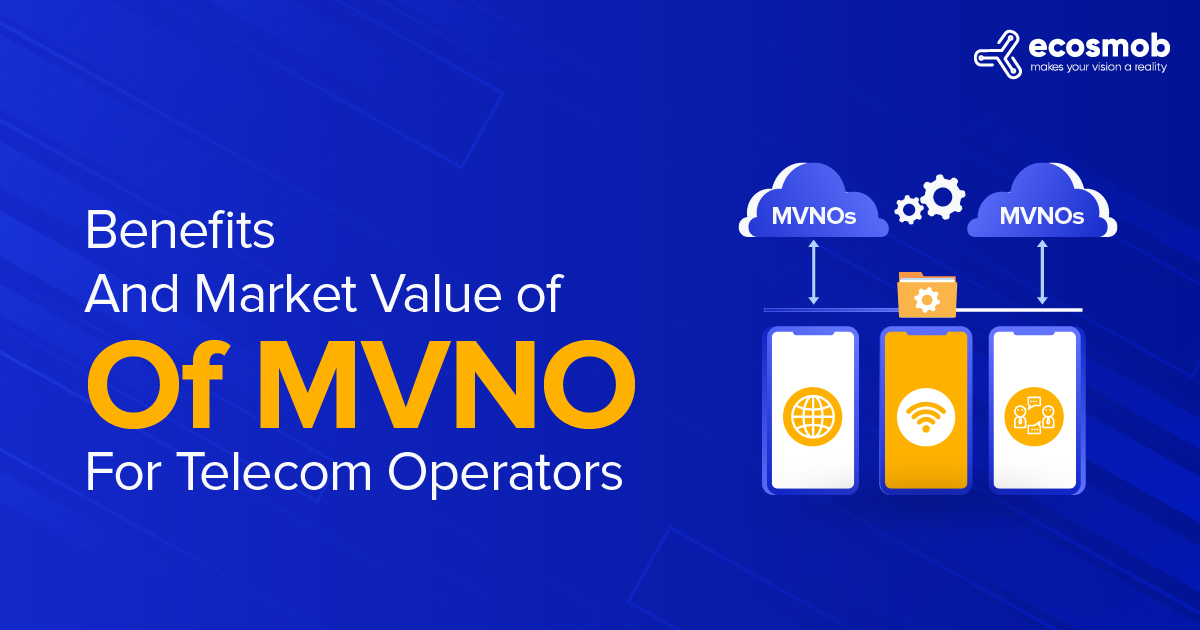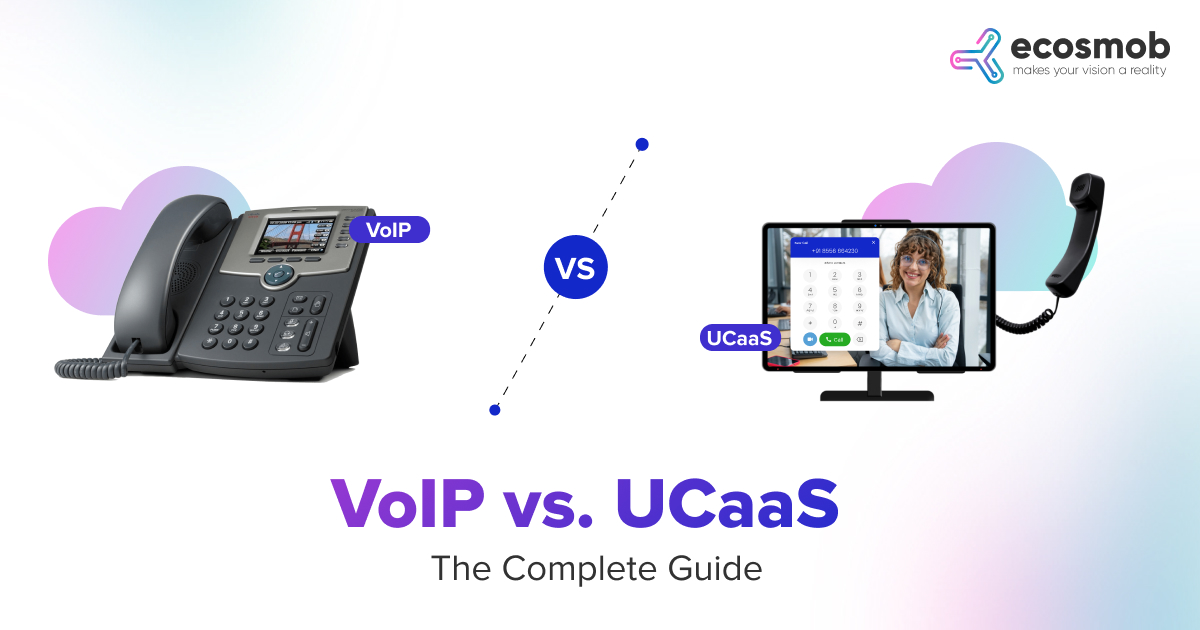The MVNO business model has taken hold over the last few years. Despite some notable failures and consolidations, the number of MVNOs is growing, as is their revenue share of the Mobile market. To encourage solutions for next-gen MVNO and increase competition, regulators worldwide have issued MVNO guidelines. The business types of MVNO telecom solution providers continue to diversify. However, they are all affected by the rapid growth of Mobile Data services, margin compression, and the impending rollout of 4G technology. In this article, we will discuss the market value of MVNO and how it can benefit your business as an MVNO telecom solution provider. But first, let’s understand what MVNO is.
What Is MVNO in Telecom
An MVNO meaning (mobile virtual network operator) reseller is a wireless communications service.
An MVNO leases wireless capacity (in effect, buys “minutes”) at wholesale prices from a third-party mobile network operator (MNO) and resells it to consumers at lower retail prices under its business brand. MNOs like Verizon Wireless and T-Mobile sell to MVNO solutions because their networks have excess capacity that would otherwise go unused. The MNO makes a small profit rather than a loss by offloading capacity in bulk at wholesale prices.
MVNO Market Evolution
Although the concept of network-less operators is now well established, it is evolving due to market pressures and new technologies. Simultaneously, the variety of MVNO business models and styles has not narrowed. According to research gate, “Although MVNOs have spread to Asia and North America, Europe has the most MVNOs.” MVNOs specialize in niche markets (for example, ‘Migrants’) and are quick to seize new opportunities (e.g., M2M – Machine to Machine). MVNO software solution providers that rely on strong distribution and brands, such as supermarket chains, are simply resellers, as are retail divisions of established Telcos that purchase ‘coverage’ from their wholesale division.
Research by Mordor Intelligence states, “At present, the MVNO market estimates stand at USD 61.9 billion and are expected to swell to USD 91.63 billion by 2026.”
The penetration of MVNO software solution providers differs by territory, implying that the MVNO business is more dependent on regional aspects than on generic services. However, the widespread use of 3G data services in recent years has benefited MVNO businesses everywhere. MVNOs thrive on Broadband Data differentiation through their services or third-party content.
Benefits of MVNO for Telecom Service Providers
The MNO’s original motivation for partnering with MVNO solution providers was to offset infrastructure costs and use spare capacity. With the proliferation of mobile broadband, spare capacity has vanished, leaving MNOs with a capacity squeeze. LTE is popular for dealing with high data volumes, not voice. However, installing LTE infrastructure introduces new CAPEX requirements and the need to reduce borrowing, so earning wholesale revenues from MVNOs remains a viable option for MNOs to fund infrastructure. Lower costs, custom services, and better customer experience are some of the benefits that MVNO businesses offer to stand out.
● MVNO businesses can offer more competitive offerings to consumers, which means lower costs without compromising service. Using network capacity without owning it saves money, which is then passed on to the consumer.
● MVNOs can also provide a more tailored-made service than MNOs, which tend to provide a more generic service that caters to the masses. Businesses can tailor offerings to different consumer needs by segmenting the market.
● MVNOs also tend to provide a better customer experience. They primarily focus on providing a service rather than maintaining networks.
Challenges in the MVNO Business
While the advantages of MVNO solutions are obvious, the road to a successful launch is not always. MVNO billing solutions startups can achieve early success, but managing the complexity of the technology while remaining competitive and scaling wisely – all while remaining profitable – can present too many challenges.
The ability to be agile and adaptable is a critical component of an MVNO telecom service provider’s success. The MVNO’s needs change as the mobile market and opportunities change. Consider the MNO market, which has been slow to adapt its business model, allowing MVNOs to capitalize on the market left open by MNOs. In order to be competitive in the future, MVNOs must prioritize agility.
Competition has also weakened the ability to sell MVNO services solely on the basis of price. MNOs have responded to MVNO competition by shifting offerings to provide low-cost options; similarly, MVNO telecom service providers must shift from focusing solely on cost benefits to consumers to focusing on value-added services.
Overcoming MVNO Telecom Service Providers’ Challenges
When entering the market, MVNOs should consider partnering with a Mobile Virtual Network Enablement (MVNE) provider.
MVNOs can collaborate with MNOs to launch a brand, but the MNO offering is only a portion of what an MVNO business requires to succeed, lacking flexibility and agility to bring an MVNO to market quickly.
An MVNE provides multi-tenancy, scalability, security, transparency, operational efficiency, low operating costs, and carrier capability to MVNOs without requiring lock-in.
Expanding Opportunities for MVNOs with Technology
MVNO software service providers are also embracing digital transformation in order to be more flexible, customer-centric, and cost-effective in their operations and cost structure.
E-SIM
Electronic subscriber identity modules (e-SIMs) will enable out-of-the-box connectivity. It means it will be available to all users without the need for special installation, resulting in greater ease of use.
Network Function Virtualization (NFV) and Software Defined Networks (SDN)
NFV and SDN will enable new levels of rapid time-to-market (TTM) for new services, as well as other benefits. One of the notable benefits is the ability to better manage wholesale data costs by reducing video traffic on the host network using traffic shaping on a virtualized packet gateway (PGW).
Artificial Intelligence (AI) and Machine Learning with Data Analytics
These technologies could help improve customer personalization and next-best action and provide data on device performance for IoT and more efficient operations.
Blockchain
This is especially important for mobile payments, mobile banking, and micro-loans, but it is also important for ecosystem partnerships and supply chain management.
Edge Computing
MVNO businesses may choose to offer their own distributed computing power to tap into the host’s wireless network or to use the MNO’s (or another partner’s) edge computing. It allows data produced by IoT devices to be processed closer to where it is created. Rather than sending it across long routes to data centers or the cloud to provide their customers with services with reduced latency.
Wrapping Up
By providing mobile services to all classes of people, smaller businesses, and start-ups, MVNO solutions will play an important role in shaping lives and improving societies. MVNO telecom service providers will be more prepared to enter the digital age and take the plunge, disrupting mobile tariffs and making a significant difference.
Move to Ecosmob’s dependable medium and rely on us as a 100% MVNO software development company that will enable your company to meet customer needs such as mobile messaging, call completion, fraud detection and prevention, monetizing offerings, and reducing churn.










